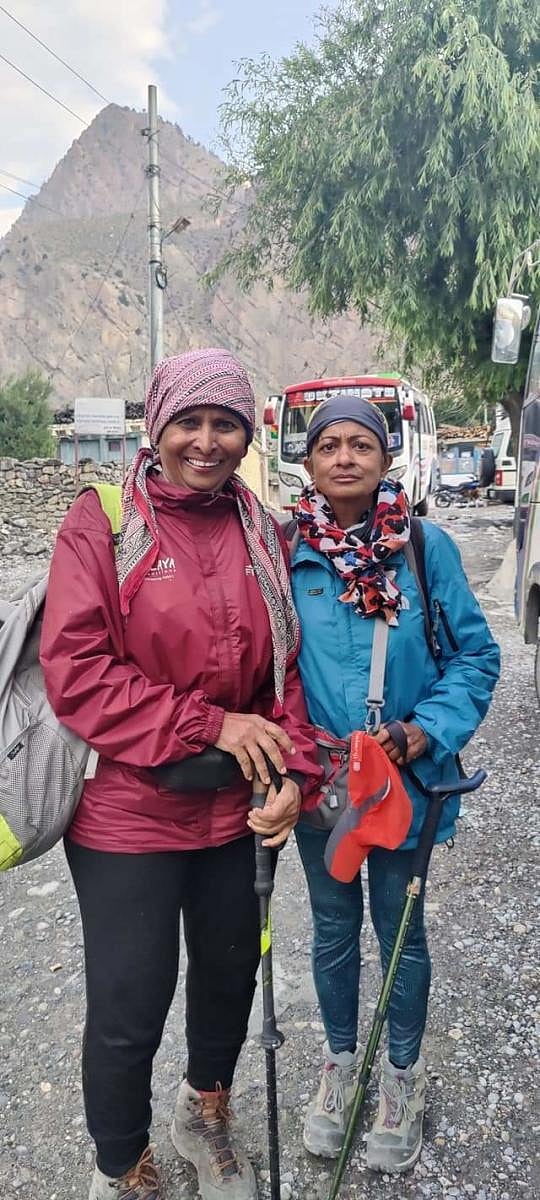
Two women from Karnataka completed the five-month and 4,500-km long trans-Himalayan all-female trek, led by legendary mountaineer Bachendri Pal on August 7.
Vasumathi Srinivasan from Bengaluru and Shamala Padmanabhan from Mysuru were part of the mission comprising 12 women, all 50 years and above.
The group walked 20-30 km daily, carrying eight to 12 kilos of trekking clothes, gears and sleeping bags. Tents were carried by porters or on ponies.
They crossed border mountains and passes dotting Arunachal Pradesh, Assam, Sikkim, Nepal, Uttarakhand and Himachal Pradesh before concluding their journey at Drass in Kargil amid tears and praise by the army. Some distance was covered in military trucks and local jeeps.
“Everyone got blisters on their feet from the first day. For some, the skin peeled off. It became a routine and we stopped complaining. We applied ointment and carried on,” recalls Vasumathi, 68.
They also endured a leech attack, and salt, Odomus, toothbrush, nothing worked to their defence that day. Shamala, 65, says, “It was June and it was raining. We were trekking through the thick, slushy jungles of Kumaon-Garhwal, with our heads bent down, to remove or escape as many leeches as possible. The entire 18-km stretch had leeches. But later, as we started removing the leeches from our shoes, dozens more crept in the socks, leaving us no time to have a bio break, breakfast break or water break.”
They were felicitated at multiple locations for their brave expedition, which was marked with rains, snow and hailstorms frequently, and a reporting time of 4 am or earlier.
Vasumathi looks back on a testing day in Nepal, when they had to walk about 29 km from the 17,769-ft Thorong La Pass to the sacred Muktinath. “We got up at 2 am. It was raining heavily, so we went back to sleep. An hour later, Bachendri came looking for everyone and said, ‘Put on your rain ponchos and head torches and start’. We reached Muktinath 13.5 hours later. That was our longest day trekking.”
They were roving locations so remote that “a farmhouse in Nepal” was all but a farmer’s deserted house. “One night, we took shelter in an abandoned cemetery, realising that only after locals pointed it out the next morning. Another time, we pitched our tents in a poultry house,” Shamala reminisces.
But nothing compares to the scare they faced when fellow mountaineer Bimla Negi Deoskar slipped at the Lamkhaga Pass between Chitkul in Himachal Pradesh and Gangotri in Uttarakhand and the army was summoned for rescue.
Bachendri’s leadership got them through the Lamkhaga accident, who prioritised safety all through the expedition. Her knowledge of indigenous greens also impressed them. When they had nothing to eat in Nepal beyond rice, roti and potato, Bachendri and two fellow trekkers foraged 12 plants (Pangri, Bermula, Bethu, Lingdi and Khandali) to cook.
Back to their homes after the trek, Vasumathi and Shamala are enjoying the comfort of daily hot showers, attached toilets, fresh clothes and warm beds. Shamala says one life is not enough to see the entire Himalayas. Still, she doesn’t want to put on her trekking shoes for next five months.